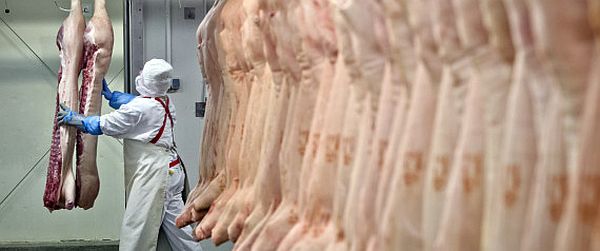The European Commission has suspended the import of horsemeat from Mexico to the European Union, following recent December audits by the "Commission's Food and Veterinary Office" (FVO,) citing concerns over food safety.
Horsemeat is routinely sent to Belgium, France, Italy, and other EU countries for consumption by humans.
Last week's audit revealed the lack of traceability of American horses slaughtered in Mexico for human consumption as to their veterinary records, and also the lack of documentation of horses' lifelong medical records, in violation of EU meat safety standards. An affidavit signed by the exporter and endorsed by a notary is supposed to declare the horses' use of veterinary medical products and the non-use of certain products during the last 180 days.
For years, Humane Society International has provided information about the use of veterinary drugs such as the common pain reliever phenylbutazone, banned for use in food animals, and routinely used in American horses. Since 2010, EU regulations stipulate:
"The only horses allowed to be slaughtered for export within the Union are those with a known lifetime medical treatment history, and medicinal treatment records that show they satisfy the veterinary medicine withdrawal periods."
There is no acceptable withdrawal period for phenylbutazone.
Mexico not only kills thousands of its horses for export to the EU, but accepts tens of thousands of American horses for slaughter and shipment to Europe. Statistics reveal that 87 percent of the horses slaughtered in Mexico originate from the US.
Horses from the United States are not raised as food animals. They are raised for use in show, sport, work, and recreation and are regularly administered drugs and other substances over the course of their lives that are potentially toxic to humans. The audit shows that authorities have not addressed these issues accurately for horses from the US and Mexico.
The United States shut down the last horse slaughter plant in 2007.
While the audit focused on food safety, it also cited the appalling suffering by the animals in the United States and Mexico. It details downed, sick horses slaughtered for human consumption despite being ill, horses suffering in export facilities on US soil, and horrific welfare problems during transport. The audit revealed the inherent cruelty of the horse slaughter pipeline which has been well documented by the Humane Society of the United States and Humane Society International.
"HSI acknowledges that the Commission is at last taking rigorous steps to protect EU consumer safety, but would like to see a moratorium covering Canada, Argentina, Brazil, and Uruguay where similar traceability problems with horsemeat exports persist."
Source: HSI.org


